FEATURED FACULTY – INTERVIEW: PART II
What suggestions do you have for the research scholars who aspire to publish in A * Journals?
Sidhartha S. Padhi: I strongly believe in two personal traits. Patience and a never give up attitude. Because in publishing, a normal review would take one to two years, and even up to four years for approval or rejection in an A category or A* journal. So I would suggest to work, work and work till the last moment, and be genuine. Let’s call it ‘Beat the Odds’ attitude. But if you want to publish on a fast track process, one needs to look at the number of volumes and number of issues of that journal. For example EJOR has 54 issues, so is the case with IJPR. But in publishing, be genuine so much that even your failures are reported with a footnote as that increases the credibility of your research. It is also good to present the research concepts / ideas in as many conferences and seminars so as to get multi-varied perspectives and viewpoints. More importantly, try to understand the scope of journals. Every journal has a scope and objective. So try to frame and draft research papers meeting these scope and objectives.
Another thing is that every research must come with a storyline. Then try to fit all variables or characters just as we script a movie. Your role of a researcher is that of a script writer and a director who develops a realistic theme enacted by talented actors (variables). Then identify the variables that need to be stretched upon. So if the script is presented in a conference, it is easy to clean up, refine and report from the feedback of the reviewers, as the comments from the experts become the first hand review for your paper. This therefore needs to be reported as a footnote as it increases your papers credibility. Once it is so documented, no one else can claim the originality of your idea. It also minimizes the possibility of others copying your idea. Therefore getting an understanding of the review process is very important. Whichever be the journal, the reviewer comments are very significant in clarifying and evolving research clarity. Here we leverage on the collective wisdom, and then create our research impact with clarity. Such clarity comes from the reviewer’s comments and editors. Knowledge wise input, and the character and structural inputs also benefit in refining your paper.
It is also challenging to publish single handedly in A* journals. So network and develop a good pool of researchers who can contribute. It is not about increasing the number of co- authors. Because there are journals which asks for the percentage contributions by each author. Therefore network with people who can factually contribute to your research efforts. And these disclosures are also to be made by the authors themselves as it augments your genuineness. To make a paper further valid, every researcher must write two aspects in minimum of thousand words. 1. The academic contribution and 2. The practitioner point of view. This brings in the authenticity and the conviction of the researcher, as the absence of these would make the paper of no use for either. And how do we finally analyse the relevance of your research? It is eventually through the number of references and citations that you get after publishing, which reflects in the H-index and the I-index.
Arqum Mateen: Considering the multi-disciplinary nature evolution of the area, I would suggest to keep tab on not only top-rated OM journals, but also those related to one’s area of research and/or interest. There will of course be overlaps, and each journal has its own language, intended audience and issues of debate. Understanding all this is extremely crucial, especially from a publishing viewpoint. Most importantly, there is no substitute for extensive reading of both academic and practitioner publications. As we start reading more and more, we start to get more ideas. Coupled with diligent work, all this would definitely bear fruit sooner than later. In summary, based on my limited exposure and understanding I would say (a) Read extensively, (b) Develop core competencies, and (c) Have tenacity to make up with your failures. One must be prepared for repeated rejections, and must have the motivation to keep improving.
- Now let’s talk of something different. What according to you is the future of research in Operations Management in India?
Sidhartha S. Padhi: Empirical researches with both scientific and practitioner utility that contributes to existing literature and practice has tremendous value as per the changing trends seen in OM research.
Arqum Mateen: I find huge potential for research on the impact of human behavior on operations management. For example of motivational aspects, reward systems, knowledge acquisition etc., are now being actively investigated by OM researchers. Behavioral OM is indeed emerging as one of the defining trends of our area. Other merging areas include humanitarian logistics, social OM and risk management. One

- Prof. Sidhartha S. Padhi interviewed by Rishikesh KB (Sr. Research & Publications Associate)
fascinating thing is that much of this emerging literature in OM is now incorporating multi-disciplinary inputs. This is making the research process all the more challenging, and at the same time more interesting and illuminating.
Another thing positive happening is that people who were doing research abroad and who have been exposed to cutting edge research are coming back to work in India. They have made an important contribution in enriching the research culture back at home. The ecosystem they have developed along with the local researchers is a positive change for quality research initiatives. With this there is also an air of healthy competition and a ‘can do’ attitude that is developing among peers. More people are therefore getting confidence in pursuing research and hopefully we will also be contributing to the cutting edge of OM and management research at a global level.
- What are the pros and cons of research in Operations Management discipline in India? Do you think OM has gained prominence in research and academic journals?
Sidhartha S. Padhi: We have this habit of chasing the possible. But in research, we need to chase the impossible, the unexplored. In India we still lack quality resources and its accessibility for research. Library and online resources aren’t matured, so are the software’s used for data analysis. And above all, availability of qualified expertise in this domain is less as compared to other disciplines. And most management researches are closed chamber research. But in OM we need to identify real life problems to link with the reality. These limitations itself should become a con as there are humungous possibilities still to develop, explore and experiment. I would suggest not keeping switching interests in research. Be specific and focused to stay hungry and stay foolish.
Arqum Mateen: There is a huge gulf between industry and academia, especially in the Indian context. Practitioners sometimes think that academic studies are not particularly relevant for them. At the same time academicians often complain of access to data and key resource persons from industries who are willing to contribute to the research process. I have experienced some of these problems first hand. Fortunately, things have definitely improved and I hope that the future shall be bright for management researchers.
- What are the possibilities of inter-disciplinary research in your subject domain of research? Have you ever explored it? Cite a few examples.
Sidhartha S. Padhi: I feel almost all disciplines have reached a point of saturation. Now it is the time to explore the interrelationship and analogy across the disciplines. I normally select co-authors from other disciplines and extend research to delve into such inter-relationships.
Arqum Mateen: I don’t want to restrict myself to some rigid, albeit misinformed, boundaries of OM as a discipline. No discipline should be compartmentalized; it restricts understanding and does not lead to comprehensive and integrated learning. OM as a discipline is all about optimization of resources and making tomorrow better than today. And this is relevant in every management discipline.
What is interesting about this interdisciplinary approach is that it keeps me fresh and on my toes. And there is always an opportunity to learn from people of other disciplines which in turn is a mutually beneficial exercise. Just to cite an example, in one of our projects we are trying to explore how supply chain networks can learn from one another across multiple tiers. We are trying to integrate literature from supply chain management, organizational learning, network theory and human resource management.
- What are your research plans for the next 5 years? / What do you think are major directions of future research in OM?
Sidhartha S. Padhi: I would like to shift focus towards theory based research. Challenge existing theories, explore and experiment the applicability and synergy of foreign theories and concepts in Indian context.
Arqum Mateen: As mentioned earlier, my current research projects include those related to supply chain coordination, sponsored search marketing, capability development in networks, and organizational learning.
- Tell us something about how you keep your free time engaged?
Sidhartha S. Padhi: I am presently writing a book that would make the OM core concepts simpler and easy to digest for a layperson. Also I am a technology freak, and I co spend time and money in getting updated by gathering all new software’s for data analysis. In a way I must say that I am biased towards technology and methodology. Whatever I can acquire or learn from new methodologies that make my research relevant and updated, I try to own it. I also try to integrate totally unrelated methodologies in research. This at times has also resulted in couple of rejections to my paper as the reviewer fails to understand the interconnections. However I still continue my passion of doing experiments with new methodologies and data analysis tools.
Arqum Mateen: I try to read as much as possible in diverse areas, not necessarily related to management. This often takes a major chunk of my time. Besides these, I play a variety of computer games. I am also a passionate football fan, so try to watch as many matches as I can, whenever I get some time.
- One Last question. What will be your advice to young research scholars who are willing and aspire to take up research in OM?
Sidhartha S. Padhi: Well I would like to put this in bullet points. 1. Respect others research. Even if it sounds mean, I normally go with the state of mind that we could learn something new and find scope for improvement from someone else’s odd thinking. So appreciate every research effort 2. Refine and retune your conventional wisdom through asking critical and challenging questions in your domain. Try not being a master of all, but one – Focus and specialize. 3. Have an in-depth knowledge in the area you specialized. Then network – join hands with people from other disciplines. 4. Look at the possibilities of inter disciplinary and intra disciplinary topics of contemporary relevance. 5. And above all, never settle. Never lose heart till the last minute. Because research is never an overnight assignment. It’s like a KAIZEN – a process of continuous improvement and discovery.
Arqum Mateen: I would suggest to (a) always stay abreast of the latest developments in the field, (b) keep writing and attempt to publish it in good journal quality journals, (c) never lose heart at a rejection. As an editor of a top quality journal once said at a seminar I attended, “If you are not getting rejected, perhaps you are not aiming high enough”, and (d) don’t wait for a moon shot publication. Keep writing and it shall come!
- There is a saying ‘shoot for the moon, even if you miss, you’ll land among the stars’. Perhaps even the A*’s. Getting inspired from you both, hope more researchers will come forward and take the research forward in Operations Management. I thank both of you for your share of time and wealth of knowledge and experience; and wish a bigger, better and brighter future for all your research and teaching endeavors. Thanks once again.
Interview concluded.
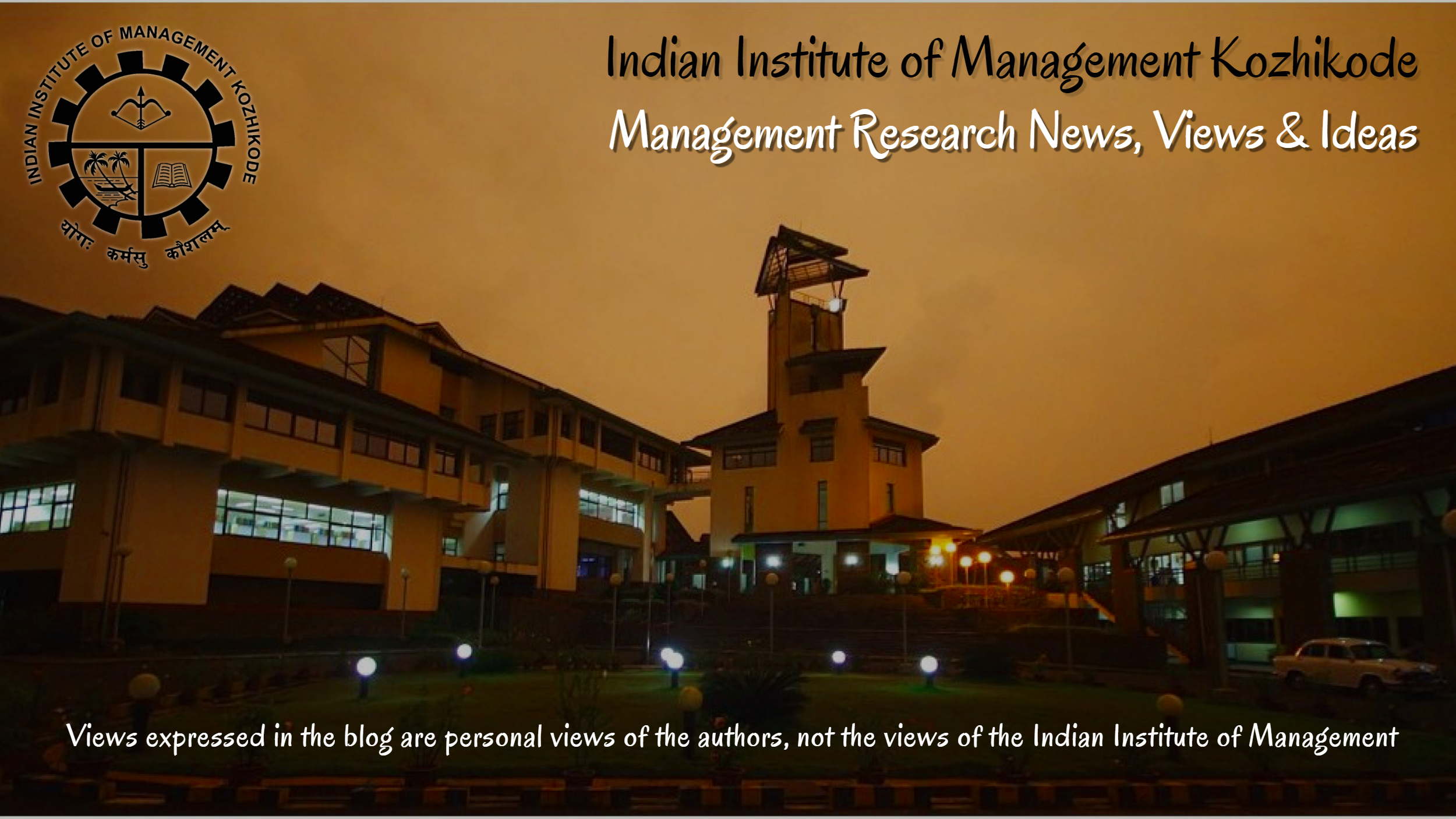



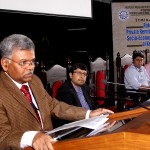
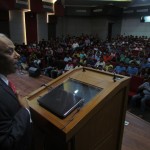
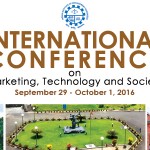
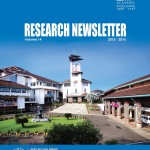

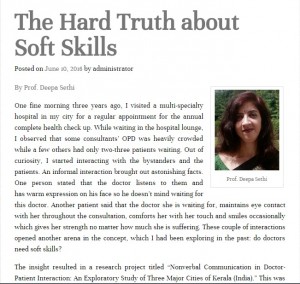
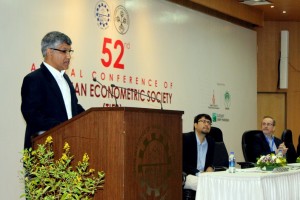
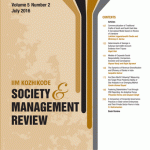
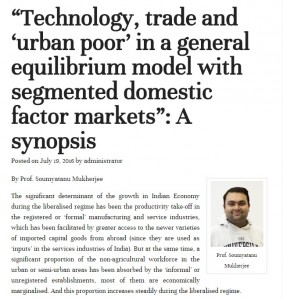





 Users Today : 372
Users Today : 372 Users Yesterday : 502
Users Yesterday : 502 This Month : 15726
This Month : 15726 This Year : 15726
This Year : 15726 Total Users : 573970
Total Users : 573970 Who's Online : 3
Who's Online : 3